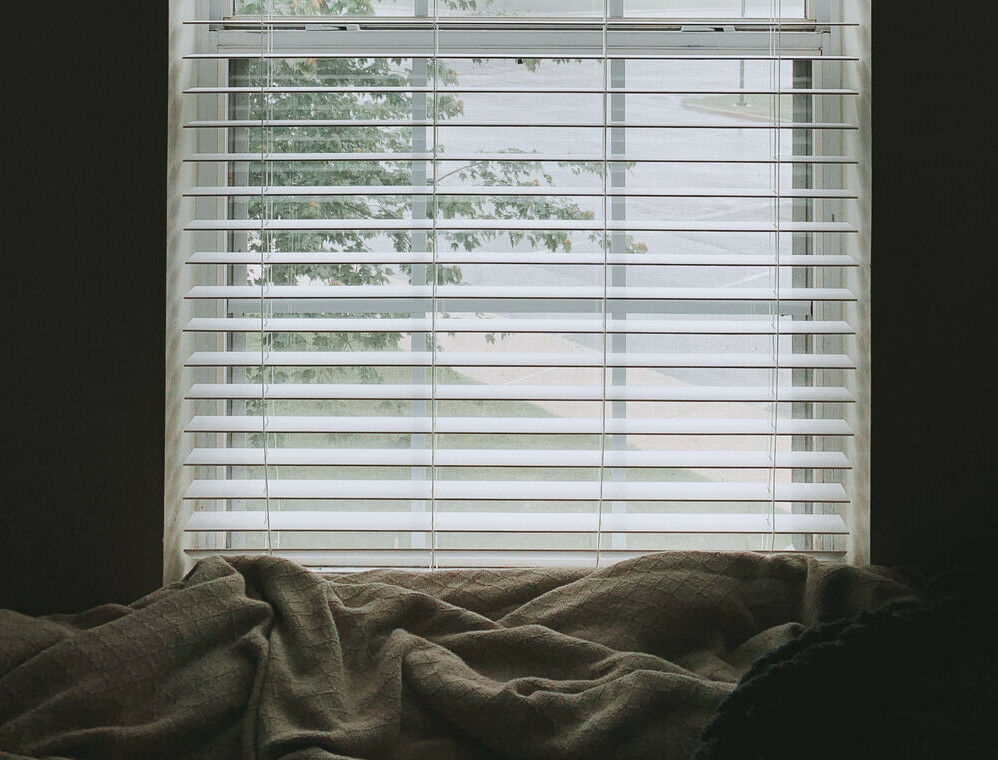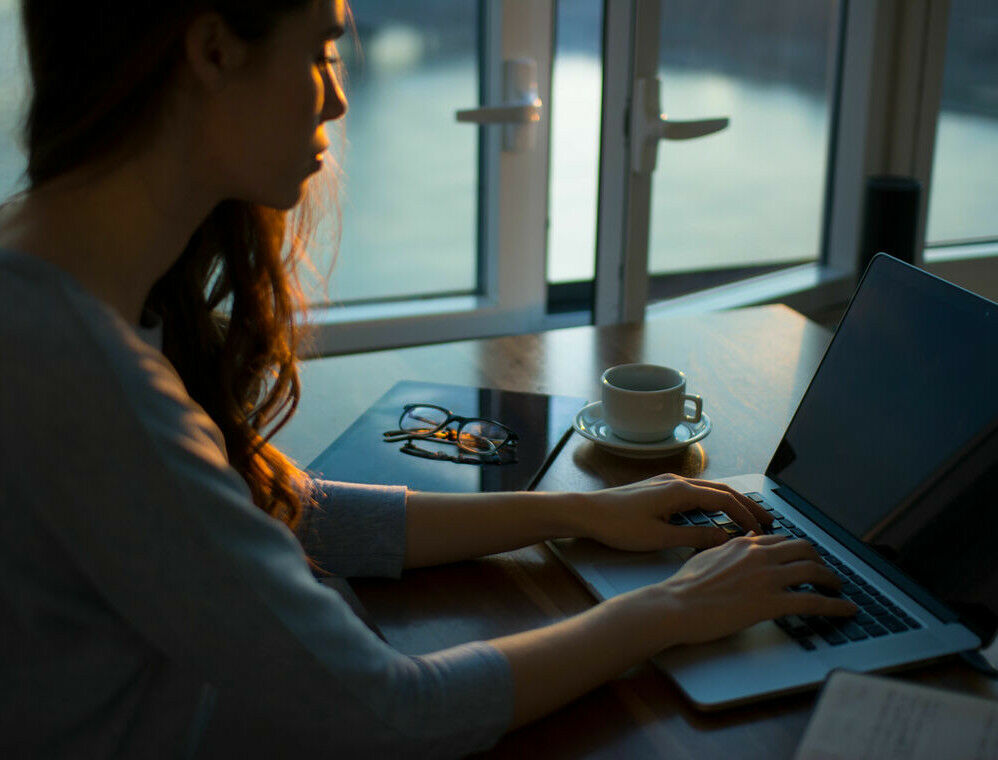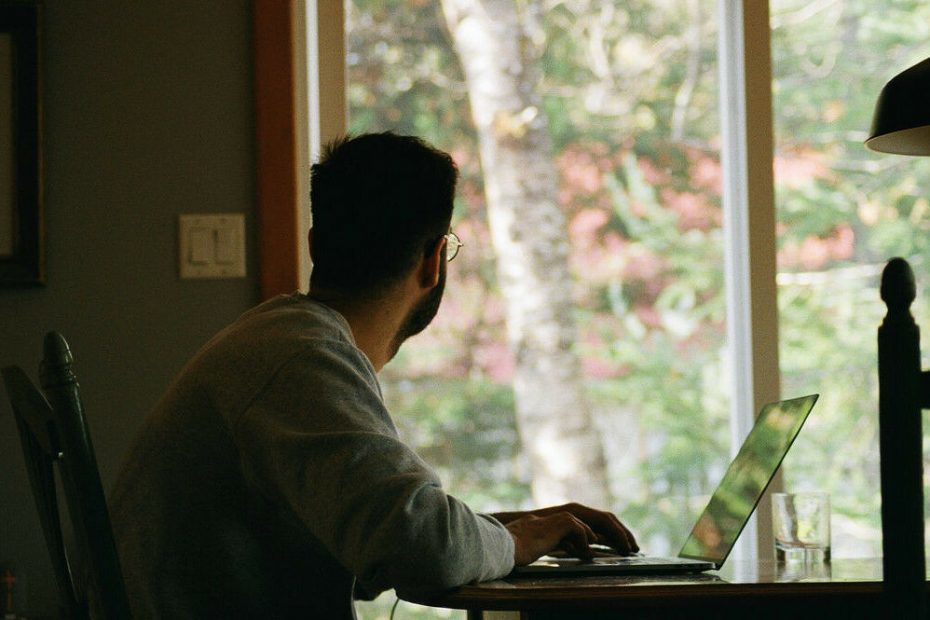Psychologist and aspiring psychotherapist Lukas Maher writes in a guest article about “home office” and its impact on mental health.
“Home office” – taboo word 2020, is also this year probably one of the most effective non-pharmacological interventions to contain the infection event of the SARS-CoV-2 virus and its mutants.
According to a survey by Statista [9], in which about 800 HR managers were interviewed, working from the home environment is possible for almost 80% of employees. However, it seems that this potential has not been used very much so far; a survey by the Hans Böckler Foundation showed that only about 24% of the employed worked completely or partially from home at the end of January [2]. The latter puts the home office potential lower, at 39%, but there is a discrepancy in both surveys. Compared with the previous months, there has been at least a moderate increase; in November, the proportion of people working from home was only around 14%. In addition to supposed economic reasons against and understandable pandemic reasons for working from home, I, as a psychologist and prospective psychological psychotherapist, wonder about the mental health of employees who work in a home office.
The mental fallout is yet to come
The negative mental health consequences of the corona pandemic are now well established [3, 8]. Many research groups are only too happy to pounce on the topic of SARS-CoV-2 in joyful anticipation of increasing scientific publications, and even if many results mostly represent only correlative relationships, it is already clear that both the disease itself is associated with negative consequences for mental health [1], including anxiety disorders, trauma sequelae, depression, and consequences of the pandemic as a whole [1], the extent of which we will probably only be able to approximate in 1-2 years. Without wishing to paint doom and gloom, the mental fallout is yet to come. Especially in the field of child and adolescent psychiatry.
How does the home office fit in as a non-pharmacological intervention to curb the pandemic? Which benefits can employees expect, which disadvantages for mental health are pre-programmed and which are controllable?
Home Alone

For the general population, home-based work is more likely to be a mental challenge during the corona pandemic. Already for decades, data have shown the effects of social isolation on (physical and) mental health. Initial reviews of the current situation, which should be taken with a grain of salt, also point in the same direction:
Isolation and loneliness promote depressive symptoms [4]. Also, an older “pre-pandemic” paper by Matos and Galinsky showed that people who increasingly work from home are more likely to report symptoms of loneliness and isolation. This appears to be consistent to date [5].
Other stress factors can be seen in the unclear separation of private life and work life, in a sense a dilution, and the longer de facto working hours. At the same time, informal conversations, small talk, “casual get-togethers” are reduced [7]. These effects are moderated by a lack of support from employers [7, 10]. Technological developments can bridge some of the barriers, but not completely overcome them. Implementation of the developments is mostly hindered by the miserable expansion of the digital infrastructure in Germany and a generally low level of technical compliance on the part of relevant stakeholders.
Gender Effect

In addition to the late-medieval digital equipment of the German education system, gender equality is another poor indicator. Not only has it become much more difficult for women in the lockdown to separate domestic and professional activities, it also seems that they are more negatively affected by working from home than men [7]. A logical but depressing correlation. Not to mention an increase in domestic violence due to increased exposure of those affected by their (male) abusers.
So far, so bad. Home offices seem to encourage isolation, make work more difficult under certain conditions, and dilute the separation of work and personal life. For women in particular, this seems to have negative health consequences.
Are there any advantages to the home office, or can we all expect to lose health?
Context and scope for action
From the organizational side, a major impact on health can be made if they adapt their home office conditions, develop structured programs, trainings and policies and implement them in their companies. Home office implementation requires a “cultural corporate shift,” or at least a willingness to make it more than just the hands of the employed. Supportive offers for the separation of work and private life, networking offers for colleagues can also be helpful [7].
Another aspect is the good of autonomy, or room for maneuver, which is highly valued in industrial psychology. If this maxim, which is almost dogmatically propagated, is followed, more home work could increase the scope of action of the employed, since in some professional contexts they have more flexibility, e.g., to schedule their work. Positive results seem to be at least anecdotal.
For whom the more home-based work, in addition to the more generally held negative effects, brings additional positive effects with it and how these then take shape in the respective occupational context is a question that empirical science is still far from being able to answer. And I don’t think it will be any time soon. The question is which recommendations for action are most likely to apply to which industry and how these can be negotiated with the individual.
And now?
For many working people, this careful consideration is not possible at the moment. It’s called the pandemic of the century, high-risk group or simply: come or lose your job. For those who work in a home office and find their mental health visibly under stress, here are some “tips” put together that may help in some circumstances – but don’t have to:
Routines
Fixed routines help to mix work time and private life less. I.e. fixed times(windows), breakfast, getting ready for work. Yes, showering and getting out of your sleeping clothes count as well. Fixed breaks and actually stopping work at the end of working hours. It sounds so banal, but unfortunately it is not.
“Investment” workplace
This probably starts with the working atmosphere. Quiet environments without distractions (if possible), where all work materials are ready. The couch may seem comfortable, but it invites you to relax and switch off. Again, work and personal life should not be diluted.
Breaks
In the home office, constant availability seems very obvious. This makes it all the more important to schedule breaks regularly and integrate them into the routine of 1. Even if it’s only 5-10 minutes. At work, you would also exchange information with your colleagues.
Stay Connected
If one suffers from isolation, it may be useful to switch written to (video)-telephone communication to encourage at least more informal exchanges, even if they take place in a professional setting.
Set Limits
Especially important for those who do not work alone from home, couples or families for example. This requires a good amount of communication, despite gaining flexibility not to dilute the boundaries between family life and work. This is certainly not an easy point to make.
Mental Training
Our minds can also benefit from mental training. Relaxation exercises or mindfulness practice can – if they fit the user – have positive effects on mental health. But they do not have to.
Sources
1. Bridgland VME, Moeck EK, Green DM, Swain TL, Nayda DM, Matson LA, et al. (2021) Why the COVID-19 pandemic is a traumatic stressor. PLoS ONE 16(1): e0240146. https://doi.org/10.1371/journal.pone.0240146
2. Hans-Böckler Stiftung. (2021). Studien zu Home Office und mobiler Arbeit. Abgerufen am 24.02.2021. Verfügbar unter: https://www.boeckler.de/de/auf-einen-blick-17945-Auf-einen-Blick-Studien-zu-Homeoffice-und-mobiler-Arbeit-28040.htm [German]
3. Kontoangelos K, Economou M, Papageorgiou C. Mental Health Effects of COVID-19 Pandemia: A Review of Clinical and Psychological Traits. Psychiatry Investig. 2020 Jun;17(6):491-505. doi: 10.30773/pi.2020.0161. Epub 2020 Jun 15. PMID: 32570296; PMCID: PMC7324731.
4. Loades, M. E., Chatburn, E., Higson-Sweeney, N., Reynolds, S., Shafran, R., Brigden, A., Linney, C., McManus, M. N., Borwick, C., & Crawley, E. (2020). Rapid Systematic Review: The Impact of Social Isolation and Loneliness on the Mental Health of Children and Adolescents in the Context of COVID-19. Journal of the American Academy of Child and Adolescent Psychiatry, 59(11), 1218–1239.e3. https://doi.org/10.1016/j.jaac.2020.05.009
5. Matos K, Galinsky E. Commentary on How Effective Is Telecommuting? Assessing the Status of Our Scientific Findings. Psychological Science in the Public Interest. 2015;16(2):38-39. doi:10.1177/1529100615604666
6. Nakrošienė, A., Bučiūnienė, I. and Goštautaitė, B. (2019), “Working from home: characteristics and outcomes of telework”, International Journal of Manpower, Vol. 40 No. 1, pp. 87-101. https://doi.org/10.1108/IJM-07-2017-0172
7. Oakman, J., Kinsman, N., Stuckey, R. et al. A rapid review of mental and physical health effects of working at home: how do we optimise health?. BMC Public Health 20, 1825 (2020). https://doi.org/10.1186/s12889-020-09875-z
8. Panchal, Kamal, Cox & Garfield. (2021). The Implications of COVID-19 for Mental Health and Substance Use. The Kaiser Familiy Foundation. Abgerufen am 24.02.2021. Verfügbar unter: https://www.kff.org/coronavirus-covid-19/issue-brief/the-implications-of-covid-19-for-mental-health-and-substance-use/
9. Statista Research Department. (2020). Statistiken zum Home-Office. Abgerufen am 24.02.2021. Verfügbar unter: https://de.statista.com/themen/6093/homeoffice/.
10. Sykes D., Faruqi S., Holdsworth L., Crooks M. (2020) Impact of COVID-19 on COPD and Asthma admissions and the pandemic from a patient’s perspective. ERJ Open Research DOI: 10.1183/23120541.00822-2020
Share this Post:
Lukas Maher
Our guest author Lukas is a psychologist and aspiring psychotherapist. In his project Systemic Health he deals with mental health especially in the context of nutrition and sports. In a guest article, he writes on the topic of home office and its effects on mental health.

